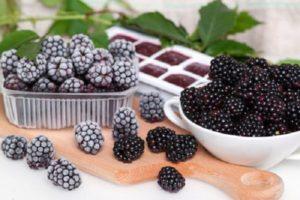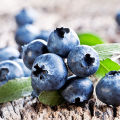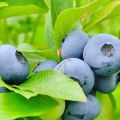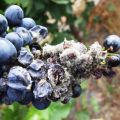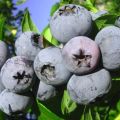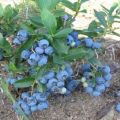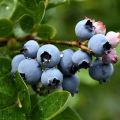The best mineral and organic fertilizers for blueberries, how and what to feed
In the wild, blueberries grow in wetlands and absorb nutrients from the soil on their own. When growing berries in the garden, you will need to use fertilizer for blueberries to stimulate growth, improve taste and yield.
Should blueberries be fertilized?
Tall plants require a lot of strength and energy, which is almost impossible to obtain without the use of fertilizing. Without fertilization, blueberry bushes are capable of bearing fruit, but the amount of harvest will significantly decrease.
When is the best time to fertilize a crop?
You can make top dressing in the soil in the spring and autumn. Treating the plantations in each season has its own advantages. In addition, some compound fertilizers involve staged application that lasts throughout the season.
In autumn, there is often a shortage of phosphorus and potassium elements. In the spring, nitrogen-containing substances are required, which contribute to the active growth of green mass. Fertilization in the fall is carried out only after abundant watering.
In addition to basic dressings, plant treatment is required after each formation. For this purpose, specialized solutions are used, which can be purchased at gardening stores. Treatments for cut bushes provide protection against pest and disease infestation.
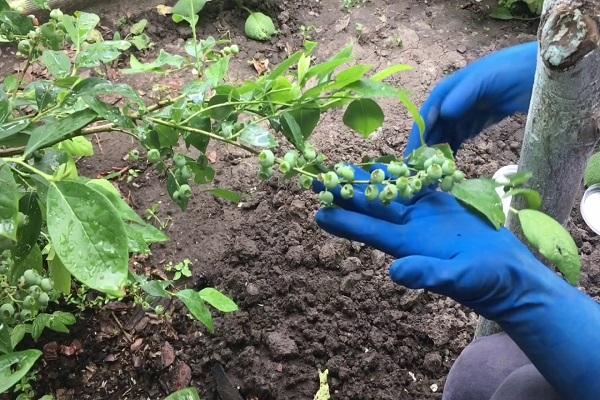
Signs of micronutrient deficiencies
You can notice the lack of nutrients in the soil by its appearance. In particular, blueberries exhibit the following visual characteristics:
- slow growth, yellowing and drying of foliage;
- leaf deformation and inclination to the ground;
- drying out of young undeveloped shoots;
- stopping the development of shoots;
- the general depressed state of the plantings.

How and with what to fertilize blueberries?
In different periods of development of blueberry bushes, it is required to feed them with various substances. Conditionally, all types of fertilizers can be divided into mineral and organic. The former contain chemical trace elements, and organic matter is a means of natural origin.
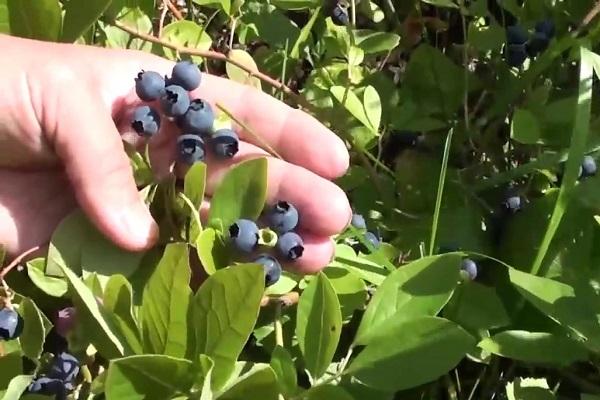
Organic fertilizers
Natural fertilizers benefit blueberry bushes throughout the season, and especially during flowering, which is mid-July to early August. Each of the organic fertilizers has its own characteristics and has a different effect on the growth of blueberries.
A characteristic property of all organic matter is the ability to neutralize the acidity of the soil.If acidification has occurred in the soil, then top dressing will make the acidic soil neutral. In the opposite case, when you need to acidify the soil for planting blueberries, organics are also beneficial.
Manure
Manure dressing is a mixture of bedding from a livestock stall with their droppings. It is correct to use manure for application into the soil only in a rotted state, since in its fresh form it contains a large amount of live weed seeds, which will begin to actively germinate in the soil. The manure must be diluted with water in a 10: 1 ratio.
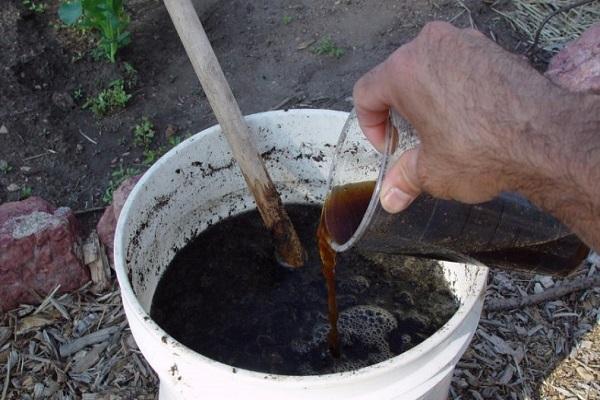
Compost
Making compost at a summer cottage for the subsequent fertilization of blueberries allows you to simultaneously accomplish 2 tasks: to get a universal top dressing and get rid of plant waste for the benefit of plants. The saturation of the earth with compost improves the fertility rate and physical and chemical properties, which contributes to the creation of favorable conditions for growing berry crops.
Compost is considered a universal top dressing and is suitable for any type of soil. Application of fertilizing under blueberry bushes makes light sandy soils heavier and retains moisture in them, and when grown on heavy clay soils - improves aeration and permeability.
To fertilize blueberries in spring and summer, the compost is scattered over the surface of the beds and carefully dug to a depth of 5 cm. You can apply compost to the weeded soil or overgrown with weeds. Using the second option, the weeds are chopped up with a shovel and mixed with compost.

Chicken droppings
Chicken droppings contain a large amount of nitrogen, without which blueberries cannot develop and bear fruit normally. The concentration of useful components in chicken droppings is much higher than in livestock manure. In addition to nitrogen, the composition contains phosphorus, potassium, manganese, cobalt, copper, zinc and other elements.
Even a single application of a solution of chicken manure gives a visual effect - bushes with berries look healthier and stronger. Regular application of top dressing increases the yield over several years. This is due to the fact that the nutrient components measurely saturate the soil and roots of the bushes. If the manure is used at the stage of seedling germination, it protects the soil from drying out, improves the structure of the soil, and reduces the number of weeds.
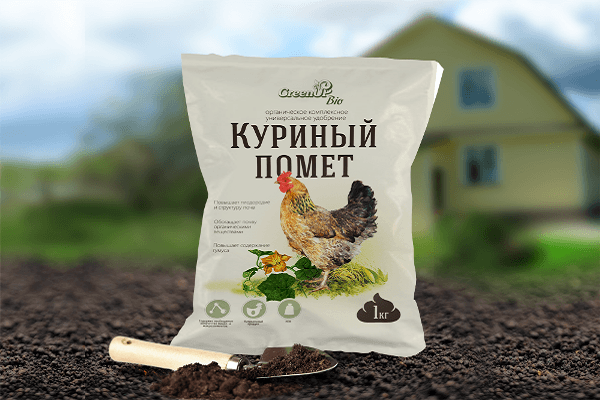
Mineral
In addition to organic fertilizing, blueberries can be fertilized with minerals. There are many such fertilizers that need to be applied according to different instructions. Mineral dressing not only saturates the soil with useful components, but also prevents common diseases. The greatest effect can be achieved when using complex fertilizers, for example, substances Florovit, Target or Tiovit Jet from Polish and other foreign manufacturers.
Ammonium sulfate
Ammonium sulfate is a popular type of nitrogen fertilizer for blueberries. The substance is especially useful for acidification on carbonate soil. This is necessary because over time the reaction of the soil will level out and it is necessary to acidify it again.
The sulphate application rate is 10-25 kg / ha. In beds where it is required to oxidize the soil, you can increase the amount of fertilizer. The substance is applied several times during the season, keeping equal proportions.
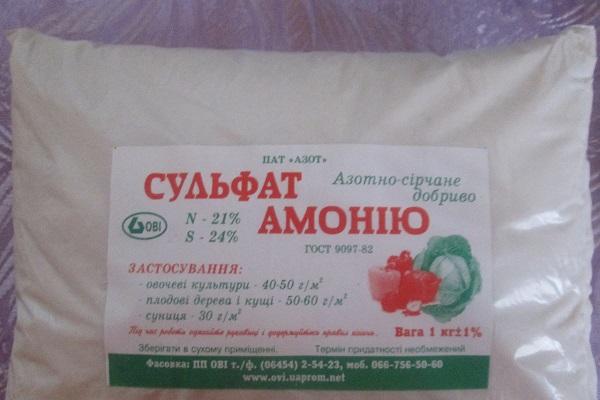
Colloidal sulfur
The use of colloidal sulfur for blueberries has a complex effect. In particular:
- saturates the soil with organic components;
- promotes soil acidification;
- fights fungal diseases;
- inhibits the activity of ticks and other parasites.
The effectiveness of colloidal sulfur is based on the vapor it releases after penetrating into the ground. These vapors do not penetrate the blueberry bushes and stop the spread of diseases.Sulfur shows the best results when treating plants prone to rust, scab and powdery mildew.
Potassium sulfate
Potassium sulfate is used as a fertilizer for growing blueberries in open or closed ground. It contains more than half of the potassium, and there is no chlorine, which improves the beneficial effect on crop growth. Caring for the beds using potassium sulfate increases the vitamin content of the berries and prevents the development of diseases.
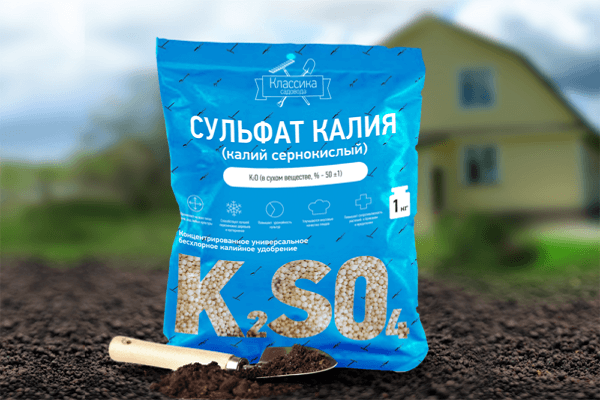
Also, potassium sulfate is recommended to be used to ensure successful wintering for perennial plantations. By adding liquid or dry potassium sulfate in the fall, it will be possible to increase protection against severe frosts. Alternatively, potassium monophosphate can be used.
Folk remedies
In addition to organic and mineral supplements, you can use folk remedies to care for blueberries. These include:
- Land cultivation with acidified water. To acidify the soil, you can water the beds with citric acid, adhering to the ratio of 2 teaspoons to 3 liters of water.
- Acidification with vinegar. After mixing 1 glass of vinegar essence with a concentration of 9% with a bucket of water, it is necessary to water the soil around the bush. The number of treatments depends on the state of the plantings.
- Watering with electrolyte (diluted sulfuric acid). The electrolyte effectively acidifies the soil and stimulates the growth of plantings.
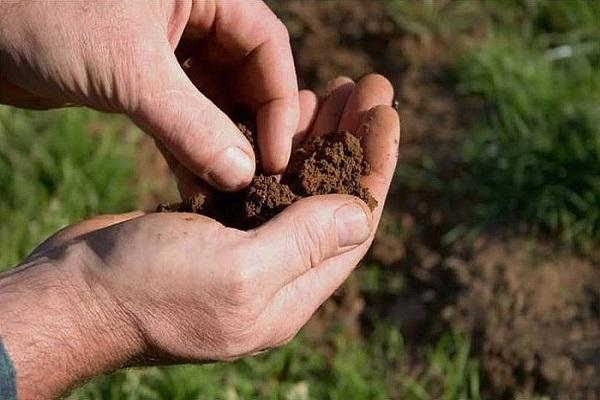
Fertilizers for planting blueberries on different types of soil
Specific soil requirements must be met even at the stage of planting blueberries. The choice of fertilizer for the planting hole depends on the type of soil on the site. When landing, it is recommended to take into account the following recommendations:
- for light loam, a mixture of high peat and sand in a ratio of 1: 1 is suitable;
- sandy loam soil is covered with peat and removed topsoil in equal proportions;
- river sand and earth in proportions of 3: 1 are used as a filler for peat-bog soil;
- lime soil is covered with coniferous litter and peat in a ratio of 1: 3.
Do not grow blueberries on heavy clay soil. The roots of a berry culture will not be able to withstand high soil pressure and increased moisture without negative consequences. In addition, clay has a detrimental effect on the roots due to insufficient air permeability.
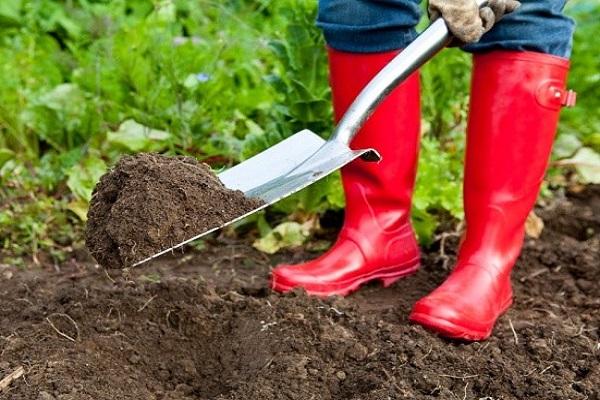
Errors in the feeding process
Inexperienced gardeners often make mistakes when fertilizing. The most common mistake is improperly prepared soil, which must be acidic for blueberries to grow well. To acidify the soil, appropriate top dressing begins to be applied even at the stage of digging out the planting holes.
Also a mistake is an insufficient amount of fertilizers or a violation of the schedule for their use. Even with the active development of plants, one should not neglect the use of dressings. At the same time, it is important to correctly combine fertilizers, depending on the state of the plants and the cultivated variety.
